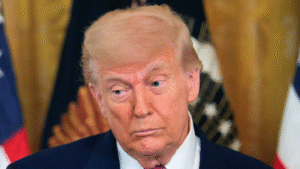In a major legal development, the U.S. Supreme Court Declines to Revisit Landmark Media Protections, reinforcing critical safeguards for press freedom. The Court’s decision upholds the historic New York Times v. Sullivan ruling, which sets a high bar for defamation lawsuits brought by public figures against the media.
Understanding the Supreme Court’s Decision on Media Protections
The Supreme Court’s ruling ensures that journalists and media outlets can report on public figures without fear of undue legal consequences. Under the New York Times v. Sullivan standard, public figures must prove “actual malice” to win a defamation case. This means they must show that a false statement was made knowingly or with reckless disregard for the truth.
Without this high legal standard, journalists could face overwhelming legal challenges, discouraging investigative reporting. This decision preserves press freedom and allows the media to scrutinize influential individuals without constant fear of lawsuits.
Key Legal Standards for Defamation Cases
| Legal Standard | Definition | Who It Applies To |
|---|---|---|
| Actual Malice | The statement was knowingly false or made with reckless disregard for the truth | Public Figures |
| Negligence | The statement was false due to carelessness, but not intentional | Private Individuals |
| Strict Liability | A statement can be false, but intent does not matter | Not used in U.S. defamation law |
Why the Supreme Court’s Ruling Matters for Press Freedom
The New York Times v. Sullivan ruling, established in 1964, remains one of the most important legal precedents protecting the media from undue censorship. By refusing to hear Wynn’s case, the Supreme Court signals continued support for these fundamental protections.
Had the Supreme Court agreed to revisit the case, the ruling could have significantly changed how defamation lawsuits are handled, potentially making it easier for public figures to sue media outlets. This could have led to self-censorship, where journalists avoid reporting on sensitive topics due to legal risks.
Impact of the Supreme Court’s Decision
[ Supreme Court Decision ]
|
---------------------------------
| |
[Protects Media] [Prevents Censorship]
| |
[Encourages Investigative] [Maintains High Legal Bar]The Case of Steve Wynn: A Challenge to Media Protections
Steve Wynn, a billionaire casino mogul and former CEO of Wynn Resorts, filed a defamation lawsuit against the Associated Press after it reported allegations of sexual misconduct against him. However, the Nevada Supreme Court dismissed the case, ruling that Wynn failed to prove actual malice.
Wynn’s appeal sought to weaken press protections by revising the New York Times v. Sullivan standard. If successful, his case could have made it easier for powerful individuals to silence critical news reports. By rejecting his appeal, the Supreme Court reaffirmed the strength of the existing legal framework.
The Role of a Free Press in Democracy
Freedom of the press is a cornerstone of democracy, allowing journalists to investigate and expose corruption, government actions, and corporate misconduct. If media protections were weakened, it could lead to a chilling effect where journalists avoid covering controversial stories for fear of litigation.
Public figures, including former President Donald Trump, have voiced support for revising defamation laws to make it easier to sue news organizations. However, legal experts argue that weakening these protections could lead to censorship and hinder investigative journalism.
A free press is essential for holding those in power accountable. Without robust legal protections, journalists might face relentless legal threats, limiting their ability to report on corruption, political affairs, and public interest stories.
Conclusion: Why This Decision is a Win for Press Freedom
The Supreme Court’s refusal to reconsider New York Times v. Sullivan reinforces the strength of the First Amendment and ensures that media outlets can continue reporting without fear of baseless defamation lawsuits.
This decision highlights the Court’s commitment to preserving press freedom—a fundamental pillar of democracy. It ensures that investigative journalism remains protected, allowing the media to provide accurate and critical reporting without the looming threat of legal retaliation.
With media playing an increasingly vital role in today’s society, such protections are crucial to preserving transparency and accountability. Journalists must be able to report freely to maintain an informed and empowered public.





